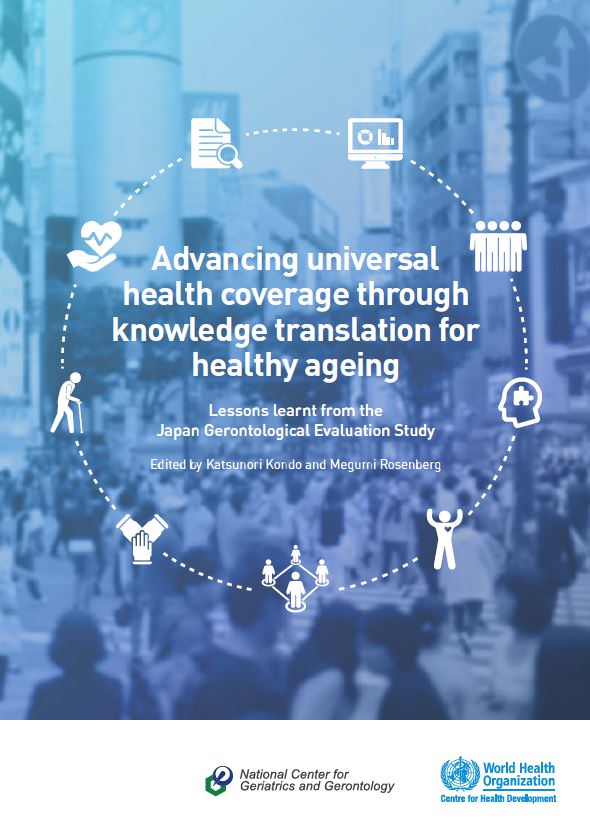
A model of knowledge translation from Japan
Knowledge translation (KT) involves interpreting research evidence and applying it to practice. In the context of population ageing, KT is fundamental to ensuring that health system responses to population ageing are evidence-based and appropriate. The Japan Gerontological Evaluation Study (JAGES) stands as a model of KT in Japan, a high-income country at an advanced stage of health development and population ageing. JAGES collects longitudinal, social epidemiological data on representative samples of community-dwelling, independent older people aged 65 years and older through a self-administered mail survey. Data have been collected every three to four years since 1999. The latest survey conducted in 2016–17 yielded responses from about 200 000 older people from 41 municipalities across the country. The research has highlighted the importance of addressing the social determinants of health through a population-based approach in order to address health inequalities and the risk of becoming dependent on long-term care among older populations. This evidence has contributed to the reform of national policies on the provision of long-term care. The researchers also conduct implementation research, which is the scientific inquiry into questions concerning the implementation of policies and practices, working closely with municipal officials to use the data and research evidence for priority-setting processes and for developing and evaluating programmes.
What drives the KT activities of JAGES?
This publication highlights seven key facilitating factors that underlie JAGES’ KT:
- mutually beneficial relationships that are established among the various stakeholders;
- multisectoral collaborations that enrich both research and practice;
- the production of quality evidence based on large-scale survey data that can be linked to relevant administrative data;
- a community-based participatory research approach to co-produce locally relevant knowledge and solutions with stakeholders;
- the creation of data visualization and management tools to facilitate the uptake of evidence by stakeholders;
- advocacy achieved through diverse media channels to reach different stakeholder groups; and
- strategic financing to obtain the resources necessary to sustain this initiative.
How does this example inform other countries?
This publication also includes several lessons learned about promoting KT on ageing and health that are transferrable to other countries:
- Create a climate and context that is favourable towards KT on ageing and health: Take advantage of the global momentum towards improving the lives of older people.
- Build relationships between knowledge producers and users: Start small, identify mutual interests and be persistent.
- Produce quality, longitudinal data: Adapt survey methods to the local context but keep them consistent within the country and across time.
- Produce actionable knowledge: Aim the research towards identifying modifiable problems and potential intervention points.
- Get the knowledge into the hands of users: Use data visualization tools and disseminate research strategically.
- Have a long-term vision and commitment to strengthen research and KT on ageing and health.
The bottom line
Implementing KT cannot be done with a short-term focus. Continuous and ongoing financial investment has sustained KT as an integral part of JAGES. Long-term investment in creating quality health information systems, building local research capacity, sensitizing policy-makers to the use of research evidence, advocating the adaptation of health systems to population ageing, and nurturing relationships between researchers, policy-makers and community members, will be critical to addressing healthy ageing and achieving UHC worldwide.
Policy brief
 政策概要(日本語):研究を通じた健康な高齢化とユニバーサル・ヘルス・カバレッジの推進
政策概要(日本語):研究を通じた健康な高齢化とユニバーサル・ヘルス・カバレッジの推進
Link to project page
Knowledge Translation for Healthy Ageing: the Japan Gerontological Evaluation Study (JAGES)
Related link


